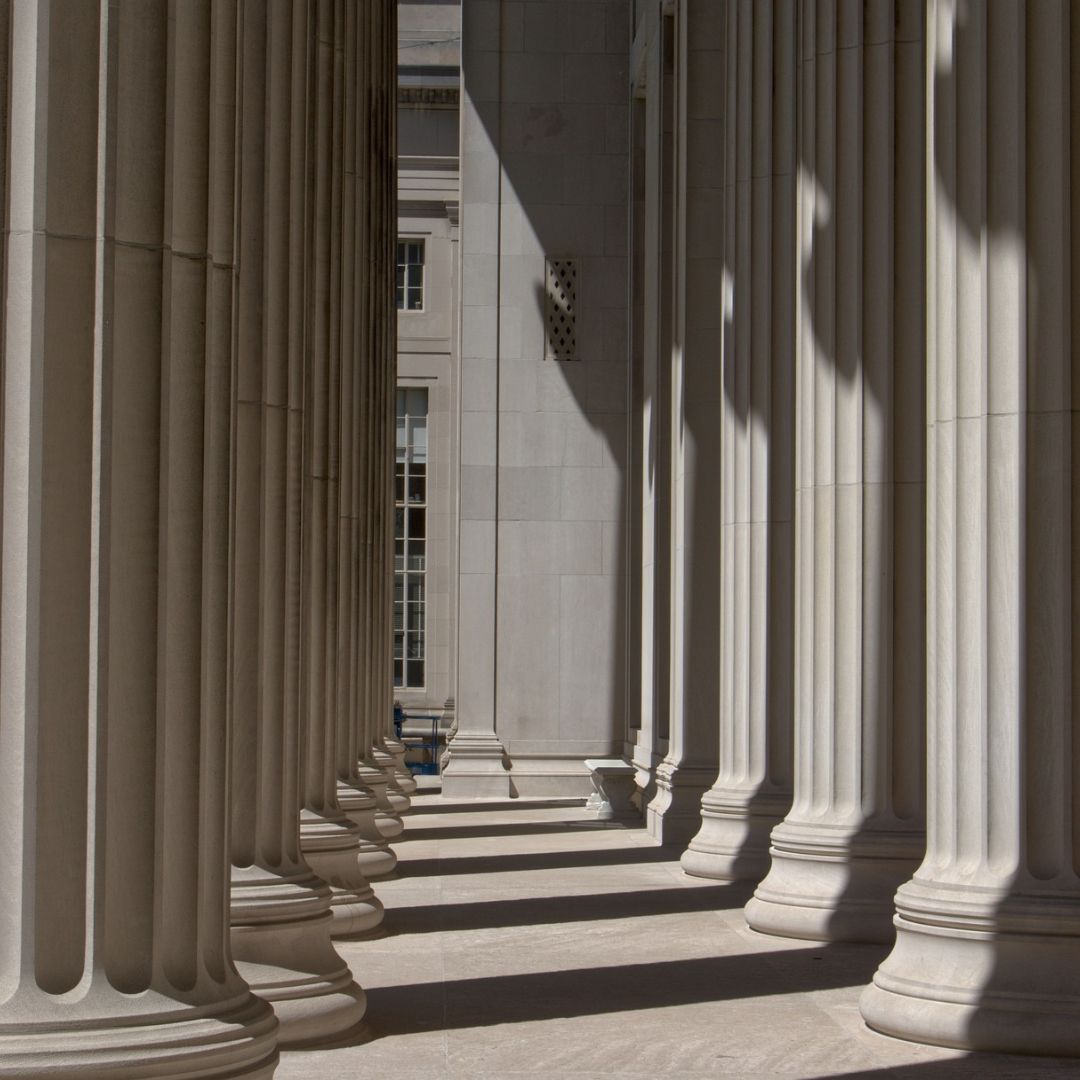Dominion
by Subomi Plumptre

Final Chapter
I grew up with eerie tales about the second coming of Christ. Scriptures like Ephesians 5: 26-27 and Revelations 19: 7-8 shaped the belief in Christian circles, that Jesus would return for a glorious church.
The reasoning went that the purity and social dominance of the church would herald Jesus’ return. Psalm 8: 3-9 NLT was also quoted by preachers to assert that God put mankind in charge of everything he’d made, and so Christians should claim that right.
In turn, the ideology fueled the “Seven Mountains Mandate.” It states that Christians ought to influence (and lead) the following spheres of society – family, religion, education, media, entertainment, business, and government. Thus, the mandate advocates for an activist Christianity, and not a passive one docilely waiting for redemption.
Cold Wash of Reality
As a Christian, I have wondered why the social influence of the Church is diminishing in the global north. If you dig into the data, church attendance and religious affiliation are declining.
This is in spite of the increasing confluence of power and resources in local assemblies – spiritual, human and financial. For instance, some of the most brilliant minds work for free in church departments.
Offerings are received and utilized tax-free. Assets are accumulated by churches over many generations. And, the church is still the locus of incredible spiritual power – the Holy Spirit.
So, what gives? Why the declining trend of external influence despite internal glory?
While I believe blind religion is antithetical to innovation & risk-taking, and has contributed to the decline, tradition doesn’t fully explain the church’s waning social influence.
Did We Leave the Holy Ghost Behind?
Perhaps, in a bid to do more and to reclaim the church’s glory, we have ended up listening less.
The Christian values that often shake the world – love, kindness, forgiveness, and wisdom – are inspired by the Holy Ghost. They rarely come from intelligence, money and routinized exuberant activity.
The other day, I was reading this scripture – “And they overcame him by the blood of the Lamb, and by the word of their testimony; and they loved not their lives unto the death.” Revelations 12:11
It hit me how a group of people could overcome a world system by what someone else did for them. Not fasting or prayer, but another’s sacrifice and their unashamed proclamation of the same. They were recounting experiential stories.
Not by Power or Might
Why does so much of modern faith seem to rise and fall on rigorous human effort? If Christians are honest, their best “work” almost feels “easy” when someone else is powering it – the Holy Ghost.
Instead of bemoaning the decline of organized religion, maybe we should humbly listen, then ask what God is thinking and doing right now. The answer might surprise us.
And if God works in generational instalments, then it stands to reason that the answer lies with young people and we should be asking them.
The church also needs to cease striving and embrace rest. If we believe the devil really is god of the world, then we cannot be more strategic than him. But God can.
And if God works in generational instalments, then it stands to reason that the answer lies with young people and we should be asking them.
The church also needs to cease striving and embrace rest. If we believe the devil really is god of the world, then we cannot be more strategic than him. But God can.
What is God Saying?
We cannot overcome the wisdom of the world – with its grand universities, research labs, policy centers, political lobbyists, forests of dark magic and lodges of fraternity.
Only the pure and simple wisdom of God will prevail. The Creator sees the end from the beginning. He weaves the tapestry of destiny and fate. He is the source of all power and his breath hamstrings mighty armies and confounds the wisdom of “Ahithophel.”
When he speaks, prophecies come to pass. Therefore, we should speak less and listen more, then execute what he says.
Generational Work is Patient
Time and patience are necessary for enduring impact. And such work can scarcely be done without embedding it in laws.
People tend to give up their individual rights for the common good. Therefore, to effect long-term change in society, you need consent through the framework of the law.
There is no sustainable change in society without political consent.
That is why Supreme Court judges, legislators, lobbyists, political party delegates, and Political Action Committees have a disproportionate impact on society. Votes only count after the option of who to vote for has already been predetermined by those groups.
And then, when it’s time to go to the polls, religious groups, industry voting blocks and the media often shape the final choice.
Politics influences social outcomes, and so Christians must pay attention to it. A stroke of a politician’s pen can have immense consequences for millions of ordinary citizens. Even those who find politics boring use their money to influence outcomes, for self-preservation purposes. Not to talk of Christians who genuinely claim to love people.
Individuals Start Movements
Radical people ignite movements, but organized groups sustain them. This is because it takes systems and structures to systematize innovation. For every person who begins a protest, there are dozens of funded NGOs who supply the placards, food and buses to fuel those protests.
It’s like venture funding in business. A brilliant person has a revolutionary idea, and creates a start-up. Then, traditional VCs provide the funds to help it scale.
Then, traditional VCs provide the funds to help it scale. Even creative artistes need rich benefactors.
Two of the enduring aspects of the radical Jesus Movement of the 60s – contemporary Christian music and home fellowships – still live on in traditional churches. But the original movement has since petered out.
Then, there’s the Azusa movement, which mainstreamed Pentecostalism and speaking in tongues, which still thrive today.
I was touched by this description of the Azusa movement’s founder, William J. Seymour, by historians Cecil M. Robeck and Vinson Synan: “As the central figure of the movement, Seymour’s humility and openness to the work of the Holy Spirit were crucial to the movement’s ethos.”
What Might the Future Look Like?
We could borrow a leaf from Seymour’s humility in our churches today. Let the Holy Spirit lead, while we follow. Let him determine the order of our worship services and church administration, while we execute. We must cede control.
That being said, I strongly believe the resurgence of the church’s social influence will be ignited by revolutionaries outside traditional churches. But, it will be sustained by the resources that already exist in local assemblies.
I also believe that the renewal will be preceded by a focus on the following:
- Personal relationship with and knowledge of Jesus.
- Dependency on the power of the Holy Ghost.
- Communities that love & care for one another and the world.
Wherever you see these things, God is there.
For more, read Success is Christian


